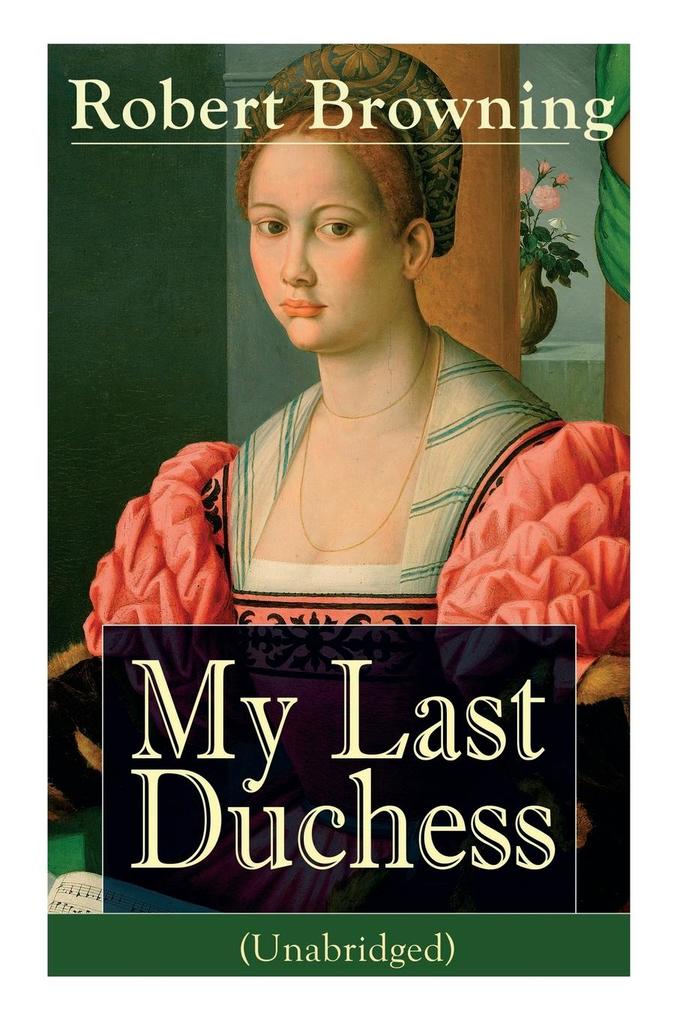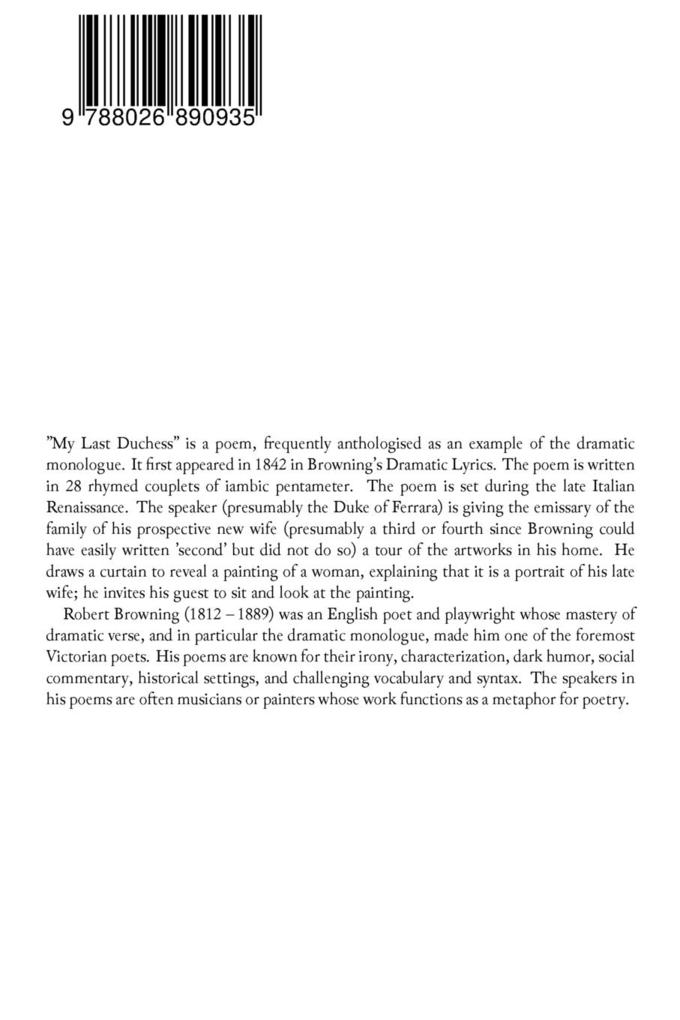
Zustellung: Di, 17.06. - Sa, 21.06.
Versand in 2 Wochen
VersandkostenfreiBestellen & in Filiale abholen:
In "My Last Duchess," Robert Browning masterfully employs the dramatic monologue form to delve into themes of power, control, and the complex nature of human relationships. The poem presents a fictional Duke who reveals his thoughts to an emissary while showcasing a portrait of his deceased wife. Through subtleties of tone and rich imagery, Browning illuminates the Duke's possessive nature and moral ambiguity, reflecting the Victorian fascination with psychology and the darker facets of human desire. The interplay of art and life within the poem serves to critique the aristocratic values of the time, effectively situating the work within the broader literary context of the dramatic monologue genre pioneered by Browning himself. Robert Browning (1812-1889) was a prominent Victorian poet known for his innovative use of dramatic narratives and psychological exploration. His upbringing in a context of rich cultural influences and early exposure to literature instilled in him a profound understanding of human emotions. The personal tragic experiences, coupled with his tumultuous marriage to fellow poet Elizabeth Barrett Browning, undoubtedly informed the poignancy and depth of character found in "My Last Duchess." This compelling poem is highly recommended for readers interested in the complexities of gender dynamics and power relationships. Browning's insightful character study offers not only aesthetic pleasure but also a rich ground for scholarly discussion. It remains a seminal work in the exploration of human psychology and an essential reading for those pursuing an understanding of Victorian poetry or dramatic literature.
Produktdetails
Erscheinungsdatum
13. Dezember 2018
Sprache
englisch
Seitenanzahl
96
Autor/Autorin
Robert Browning
Verlag/Hersteller
Produktart
kartoniert
Gewicht
141 g
Größe (L/B/H)
229/152/5 mm
ISBN
9788026890935
Bewertungen
0 Bewertungen
Es wurden noch keine Bewertungen abgegeben. Schreiben Sie die erste Bewertung zu "My Last Duchess (Unabridged)" und helfen Sie damit anderen bei der Kaufentscheidung.










